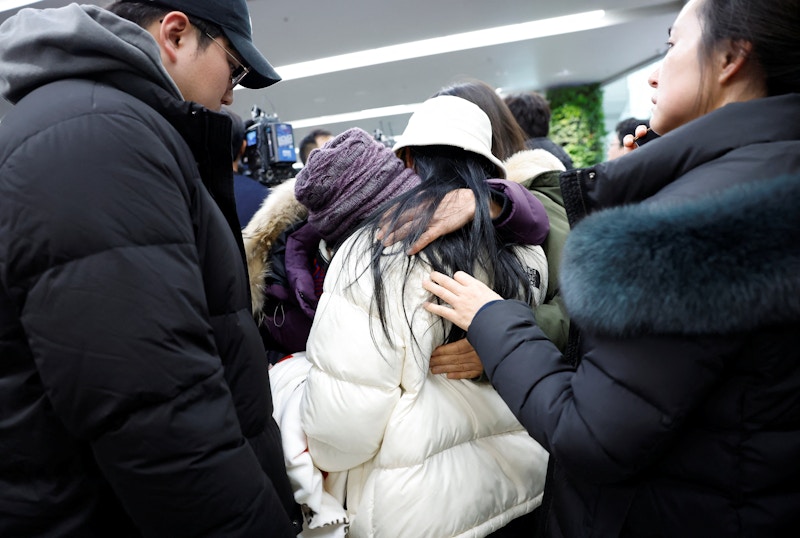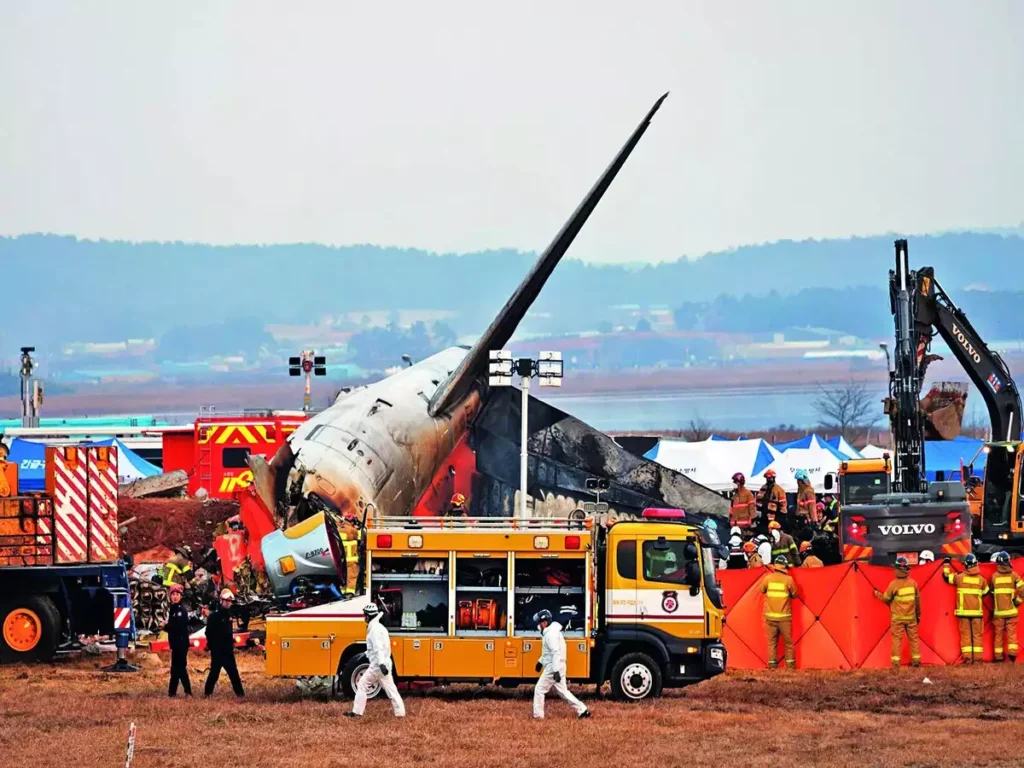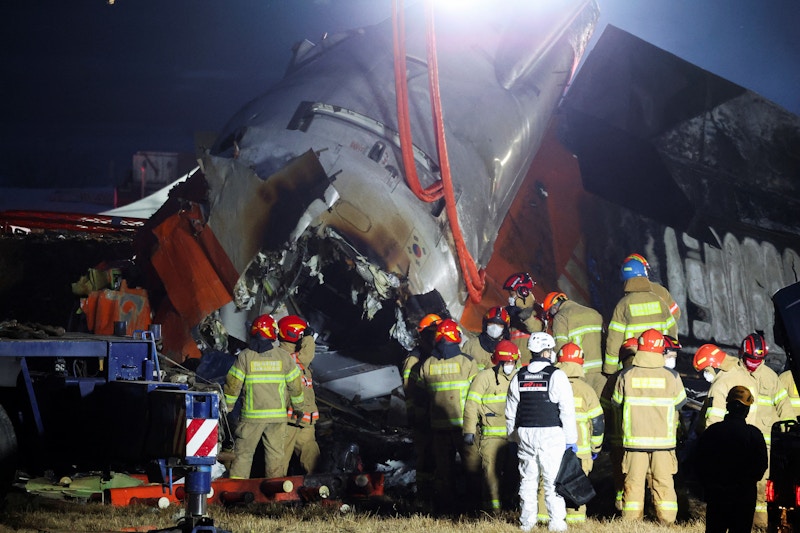South Korea’s acting President, Choi Sang-mok, on Monday ordered a comprehensive safety inspection of the nation’s entire airline operation following a tragic air disaster at Muan International Airport that claimed 179 lives. Investigators are racing to identify victims and determine the cause of South Korea’s deadliest air accident.

The crash occurred when Jeju Air flight 7C2216, a Boeing 737-800, belly-landed and skidded off the runway, erupting into flames after hitting a concrete embankment. The disaster killed all 175 passengers and four of the six crew members. Two crew members survived and are undergoing treatment.
“The immediate priority is identifying victims, supporting their families, and aiding the survivors,” Choi stated during a disaster management meeting in Seoul. He emphasized the need for transparency in the investigation and urged the transport ministry to conduct emergency safety inspections of South Korea’s entire airline operation to prevent future tragedies.
The Ministry of Transport announced plans to inspect all 101 Boeing 737-800 aircraft operated by South Korean airlines, starting Monday, focusing on maintenance records of key components.

Jeju Air flight 7C2216, arriving from Bangkok, Thailand, attempted to land shortly after 9 a.m. on Sunday when it reported a bird strike and declared an emergency. Moments later, the plane belly-landed 1,200 meters along the runway and slid into a concrete embankment.
Officials are examining various factors, including bird strikes, potential system malfunctions, and the pilots’ decision to attempt a rushed landing. Experts are also investigating the role of the localizer antenna, located on the embankment, and the absence of safety features like an engineered material arresting system (EMAS), which might have prevented the crash.
Most of the victims were South Korean residents returning from holidays in Thailand, along with two Thai nationals. Families gathered at Muan airport, awaiting updates on the identification of their loved ones.
The flight data recorder was recovered, though its condition raises concerns about whether the data is intact for analysis. A U.S. National Transportation Safety Board (NTSB) team and Boeing representatives will assist with the investigation.

Muan International Airport will remain closed until Wednesday, while other airports, including Incheon International Airport, continue normal operations.
Shares of Jeju Air plummeted by 15.7% on Monday, while Boeing’s U.S.-listed shares fell 4.3% in pre-market trading. Aviation insurance claims from the crash are estimated to range between $135 and $200 million, encompassing airline hull insurance and passenger liability claims.
Under international aviation regulations, South Korea will lead the investigation, with involvement from the NTSB due to the aircraft’s U.S. origins.
A memorial has been set up near the crash site, with Acting President Choi paying respects. The tragedy comes just days after Choi assumed leadership following the impeachment of South Korea’s president and prime minister.
This accident has reignited debates over aviation safety in South Korea, with calls for stricter regulations and advanced safety infrastructure at airports nationwide.



